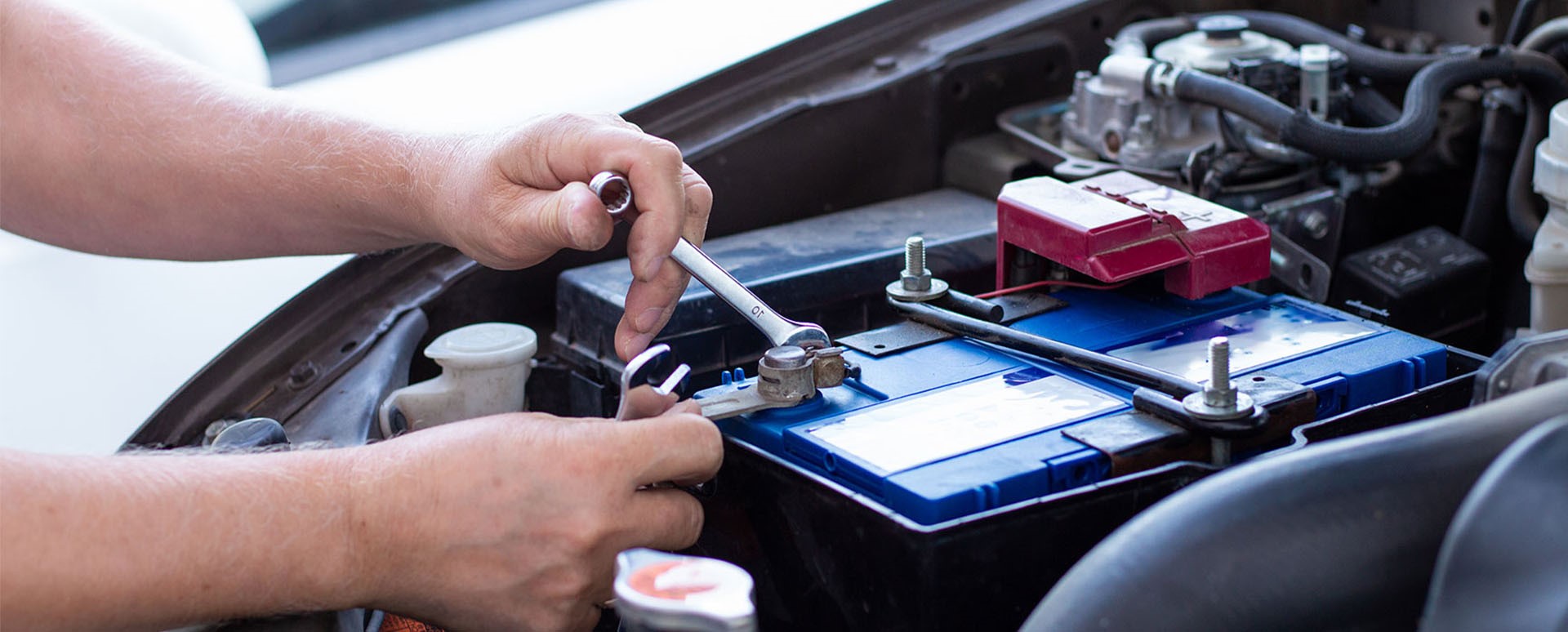Home>Weather and Climate>Tips For Maintaining Car Batteries In Cold Weather


Weather and Climate
Tips For Maintaining Car Batteries In Cold Weather
Published: March 6, 2024
Learn how to maintain your car battery in cold weather with these essential tips. Don't let weather and climate affect your vehicle's performance.
(Many of the links in this article redirect to a specific reviewed product. Your purchase of these products through affiliate links helps to generate commission for Temperatures.com, at no extra cost. Learn more)
Table of Contents
Importance of Maintaining Car Batteries in Cold Weather
Cold weather can be tough on car batteries. When the temperature drops, the chemical reactions within the battery slow down, reducing its ability to provide power to start the engine. This can lead to a higher likelihood of experiencing a dead battery during the winter months. Therefore, maintaining car batteries in cold weather is crucial for ensuring reliable vehicle performance.
A well-maintained car battery is essential for starting the engine, powering the lights, and running the vehicle's electrical systems. Without a properly functioning battery, you may find yourself stranded in the cold, unable to start your car. This not only causes inconvenience but also poses safety risks, especially in extreme weather conditions.
Moreover, a weak or failing battery can impact the overall performance of the vehicle. In cold weather, the engine oil becomes thicker, making it more difficult for the engine to turn over. A healthy battery provides the necessary power to overcome this resistance and start the engine smoothly. Neglecting battery maintenance in cold weather can result in sluggish engine starts, reduced fuel efficiency, and potential damage to the vehicle's electrical components.
By prioritizing the maintenance of car batteries in cold weather, drivers can avoid the frustration and potential hazards associated with battery failure. Regular inspections and preventive measures can help identify and address any issues before they escalate, ensuring that the battery remains in optimal condition to meet the increased demands imposed by low temperatures.
In essence, the importance of maintaining car batteries in cold weather cannot be overstated. It is a proactive approach to safeguarding vehicle reliability, promoting safety, and preventing unexpected breakdowns during the winter season. With proper care and attention, car batteries can withstand the challenges posed by cold weather, enabling drivers to navigate the roads with confidence and peace of mind.
Read more: Tips For Pouring Concrete In Cold Weather
Signs of a Weak Car Battery in Cold Weather
As the temperature drops, car batteries face increased strain, and their performance may be compromised. Recognizing the signs of a weak car battery in cold weather is essential for preemptive maintenance and avoiding unexpected breakdowns. Here are the key indicators to watch for:
-
Slow Engine Crank: When starting the car, a struggling or slow engine crank is a clear indication of a weakening battery. In cold weather, the battery's capacity to deliver power diminishes, resulting in sluggish engine turnover. If the engine seems to labor before starting, it's a sign that the battery may be struggling to provide sufficient power.
-
Diminished Lights: Pay attention to the vehicle's interior and exterior lights. A weak battery may cause the headlights, dashboard lights, and interior illumination to appear noticeably dimmer than usual. In cold weather, the battery's reduced efficiency can manifest through dim lighting, signaling a potential issue that requires attention.
-
Electrical Malfunctions: A declining battery may lead to erratic behavior in the vehicle's electrical systems. This can include issues such as malfunctioning power windows, unresponsive door locks, or a faltering radio. In cold weather, the strain on the battery can exacerbate these symptoms, serving as a warning of impending battery failure.
-
Warning Indicator: Many modern vehicles are equipped with a battery warning light on the dashboard. If this light illuminates, especially in cold weather, it signifies that the battery is not functioning optimally. Ignoring this warning could lead to unexpected battery failure, leaving the vehicle inoperable.
-
Unusual Odor: In some cases, a weak or failing battery may emit a distinct sulfuric or rotten egg-like odor. This odor can indicate a potential issue with the battery, such as overcharging or internal damage. In cold weather, this odor may become more pronounced, serving as a noticeable warning sign.
Recognizing these signs of a weak car battery in cold weather empowers drivers to take proactive measures to address potential battery issues. By staying vigilant and responsive to these indicators, individuals can mitigate the risk of being stranded due to a failing battery in the midst of winter's challenges. Regular battery inspections and timely maintenance can help ensure that the vehicle's battery remains robust and reliable, even in the coldest of conditions.
Tips for Extending the Life of Your Car Battery in Cold Weather
-
Keep the Battery Clean and Secure: Regularly inspect the battery for any signs of corrosion or buildup on the terminals. Use a mixture of baking soda and water to clean the terminals, ensuring they are free from any residue that could impede the flow of electricity. Additionally, make sure the battery is securely fastened in place to prevent excessive vibration, which can lead to internal damage.
-
Park Indoors or Use a Battery Warmer: Whenever possible, park the vehicle in a garage or sheltered area to shield the battery from extreme cold. If indoor parking is not feasible, consider using a battery warmer or insulation blanket designed to maintain the battery's temperature within an optimal range, especially during prolonged periods of sub-zero temperatures.
-
Limit Short Trips in Cold Weather: Cold starts and short trips can place a heavy strain on the battery. Whenever feasible, try to combine multiple short errands into one trip to minimize the frequency of cold starts. Longer drives allow the alternator to recharge the battery fully, promoting its overall health and longevity.
-
Invest in a High-Quality Battery: When replacing the car battery, opt for a high-quality, reliable battery that is specifically designed to withstand the challenges of cold weather. Look for models with a higher cold cranking amp (CCA) rating, which indicates the battery's ability to start the engine in cold temperatures. Choosing a robust battery suited for cold weather conditions can significantly enhance its durability.
-
Perform Regular Maintenance Checks: Schedule routine inspections of the battery, including testing its voltage and ensuring it is adequately charged. Address any issues promptly, such as loose connections or aging terminals, to prevent potential problems from escalating. Additionally, consider having the battery professionally tested before the onset of winter to gauge its overall condition.
-
Minimize Electrical Load When Starting: In cold weather, reduce the strain on the battery by minimizing the use of electrical components during start-up. Turn off non-essential accessories such as the heater, radio, and interior lights before attempting to start the engine. This can help preserve the battery's power for the critical task of starting the vehicle.
-
Utilize a Battery Tender or Maintainer: If the vehicle is not used frequently during the winter, consider using a battery tender or maintainer to keep the battery charged and in optimal condition. These devices provide a low-level charge to the battery, preventing it from discharging excessively during periods of inactivity.
By implementing these proactive measures, drivers can effectively extend the life of their car batteries in cold weather, ensuring reliable performance and minimizing the risk of unexpected battery failure during the winter months. Prioritizing the care and maintenance of car batteries is a prudent investment in vehicle reliability and safety, particularly in the face of challenging cold weather conditions.
Common Mistakes to Avoid When Dealing with Car Batteries in Cold Weather
-
Ignoring Regular Maintenance: Neglecting routine battery maintenance is a common mistake that can lead to unexpected issues in cold weather. Failing to inspect the battery for corrosion, loose connections, or signs of wear can result in preventable battery failure when temperatures drop. By overlooking these essential checks, drivers risk being caught off guard by a weakened or dysfunctional battery precisely when reliable performance is most critical.
-
Overlooking Battery Age: Underestimating the impact of battery age is another prevalent error. Car batteries have a limited lifespan, typically ranging from three to five years. In cold weather, the strain on an aging battery is amplified, making it more susceptible to failure. Disregarding the age of the battery and assuming it will continue to function optimally can lead to unexpected breakdowns and inconvenience during winter.
-
Improper Storage Conditions: Failing to provide adequate storage conditions for spare or replacement batteries is a mistake that can compromise their performance. Exposure to extreme cold without proper insulation or protection can diminish the battery's capacity and overall lifespan. Storing batteries in unheated areas or subjecting them to temperature fluctuations without safeguards can result in reduced efficiency when they are needed most.
-
Using Incorrect Battery Ratings: Selecting a battery with inadequate cold cranking amp (CCA) ratings for the specific vehicle and climate is a critical error. In cold weather, the CCA rating determines the battery's ability to start the engine. Choosing a battery with insufficient CCA for the prevailing temperatures can lead to difficulties in starting the vehicle, as the battery may struggle to deliver the necessary power.
-
Ignoring Warning Signs: Disregarding warning signs of a weakening battery in cold weather is a mistake that can escalate into a more significant issue. Diminished lights, slow engine cranks, or dashboard warning indicators should not be overlooked, as they often signal underlying battery problems. Ignoring these early indicators increases the risk of experiencing a sudden battery failure, potentially leaving the vehicle inoperable in harsh winter conditions.
-
Improper Jump-Starting Procedures: Incorrectly jump-starting a vehicle with a weak battery can cause damage to the electrical system. Connecting the jumper cables improperly or using an incompatible power source for jump-starting can result in voltage spikes and potential harm to the vehicle's sensitive electronics. Following proper jump-starting procedures is crucial to avoid costly damage and ensure a safe and effective battery boost.
-
Disregarding Professional Assistance: Attempting complex battery-related repairs or diagnostics without the necessary expertise can lead to errors and further complications. Disregarding the value of professional assistance when dealing with battery issues in cold weather can result in misdiagnosed problems or improper solutions, ultimately prolonging the vehicle's downtime and increasing the risk of additional damage.
By avoiding these common mistakes and prioritizing proactive battery care in cold weather, drivers can significantly reduce the likelihood of encountering battery-related issues during the winter months. Taking a conscientious approach to battery maintenance and addressing potential concerns promptly can enhance vehicle reliability and ensure a smoother driving experience, even in the face of challenging weather conditions.















